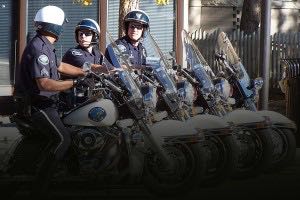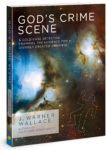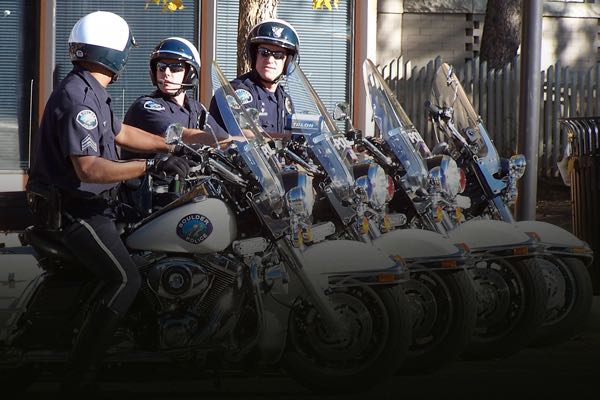
Dr. Richard Land, the president of Southern Evangelical Seminary has been saying this for some time now. When interviewed about his opening speech as the seminary’s fourth president, Lamb recalled, “I said in my inaugural address, that we were going to be involved in doing ‘apologetic evangelism’; that I was increasingly convinced, and have been even more so during the time that I’ve been here, that the way we’re going to spell evangelism, the way we’re going to spell missions, the way we’re going to spell discipleship in the twenty-first century is going to be APOLOGETICS.” I think Land is absolutely correct. We often hear it said “No one is argued into the Kingdom,” and while this statement may be true in many ways, my own experience converting to Christianity has convinced me of the truth of Dr. Land’s thoughtful insight.
I was a committed skeptic and atheist until the age of thirty-five. I was also a detective and a thoughtful evidentialist. The vast majority of my co-workers were non-Christians, but I did know a few committed believers who worked as detectives at my agency. When I poked fun at their beliefs and challenged them to give me just a few reasons why I should trust the New Testament or believe in the supernatural, they were woefully inept and unable to make an evidential case for what they believed. Every failure on their part only strengthened my atheistic resolve. How could intelligent investigators be so committed to evidence when making a case against a suspect, yet see no need for evidence when making the most important decisions about their worldview? I thought Christianity was the surest form of blind faith.
If any one of these well-meaning believers had been knowledgeable enough to share the evidence supporting their beliefs, I would have been more than willing to hear what they had to say. An evidential approach would have qualified them in my eyes and given them the platform necessary to reach someone like me. If these believers had been doing what Land calls, “apologetic evangelism” I bet I would have become a Christian many years earlier. Instead, I began my own investigation after becoming interested in the proverbial wisdom of Jesus (even as I rejected His claims to Deity). This journey eventually caused me to examine my own naturalistic presuppositions, an investigation I’ve now chronicled in God’s Crime Scene.
I learned a simple principle from working alongside seasoned homicide detectives: one way to determine if a death scene is a crime scene is simply to ask: “Can I explain all the evidence ‘inside the room’ by staying ‘inside the room’?” Imagine, for example, we’re examining a room in which a victim has suffered a gunshot injury and is lying next to a handgun. Imagine the doors are locked from the inside, all the DNA and fingerprints in the room belong to the victim, the gun is registered to the victim and there are no signs of an outside intruder. In this scenario, suicide or accidental death is a very reasonable inference. If, however, there were fingerprints or DNA from an unknown suspect, the gun did not belong to the victim, and there were bloody footprints leading outside the room, we would have to consider the more reasonable inference of murder. When the evidence in the room cannot be explained by staying inside the room and is better explained by a cause outside the room, there’s a good chance a murderer is on the loose. Intruders turn death scenes into crime scenes.
I applied this “inside the room” or “outside the room” approach when I decided to examine the evidence for God’s existence. I spent months looking at the science and philosophy. Once again I asked the simple question: “Could the evidence ‘inside the room’ of the natural universe be explained by staying ‘inside the room’?” After examining eight separate pieces of evidence, I realized my naturalistic explanations from “inside the room” were simply insufficient. I ultimately became a Christian theist on the basis of the evidence I describe in God’s Crime Scene and the confidence I developed in the reliability of the New Testament documents (as I describe in Cold-Case Christianity). I think this process took so long because I honestly didn’t know a Christian who could help walk me through the evidence. There were no “apologetic evangelists” in my circle of friends.
So I guess it’s a good thing God’s Crime Scene has been well received in the Evangelism category. Our culture is increasingly skeptical of God’s existence and far less likely to embrace unsubstantiated claims. Now, more than ever before, evangelism ought to be spelled: A-P-O-L-O-G-E-T-I-C-S. Our culture is increasingly skeptical of God’s existence and far less likely to embrace unsubstantiated claims. Now, more than ever before, evangelism ought to be spelled: A-P-O-L-O-G-E-T-I-C-S. Share on X

For more information about the scientific and philosophical evidence pointing to a Divine Creator, please read God’s Crime Scene: A Cold-Case Detective Examines the Evidence for a Divinely Created Universe. This book employs a simple crime scene strategy to investigate eight pieces of evidence in the universe to determine the most reasonable explanation. The book is accompanied by an eight-session God’s Crime Scene DVD Set(and Participant’s Guide) to help individuals or small groups examine the evidence and make the case.
J. Warner Wallace is a Dateline featured Cold-Case Detective, Senior Fellow at the Colson Center for Christian Worldview, Adj. Professor of Christian Apologetics at Talbot School of Theology, Biola University, author of Cold-Case Christianity, God’s Crime Scene, and Forensic Faith, and creator of the Case Makers Academy for kids.
Subscribe to J. Warner’s Daily Email
J. Warner Wallace is a Dateline featured cold-case homicide detective, popular national speaker and best-selling author. He continues to consult on cold-case investigations while serving as a Senior Fellow at the Colson Center for Christian Worldview. He is also an Adj. Professor of Christian Apologetics at Talbot School of Theology, Biola University, and a faculty member at Summit Ministries. He holds a BA in Design (from CSULB), an MA in Architecture (from UCLA), and an MA in Theological Studies (from Gateway Seminary).
































